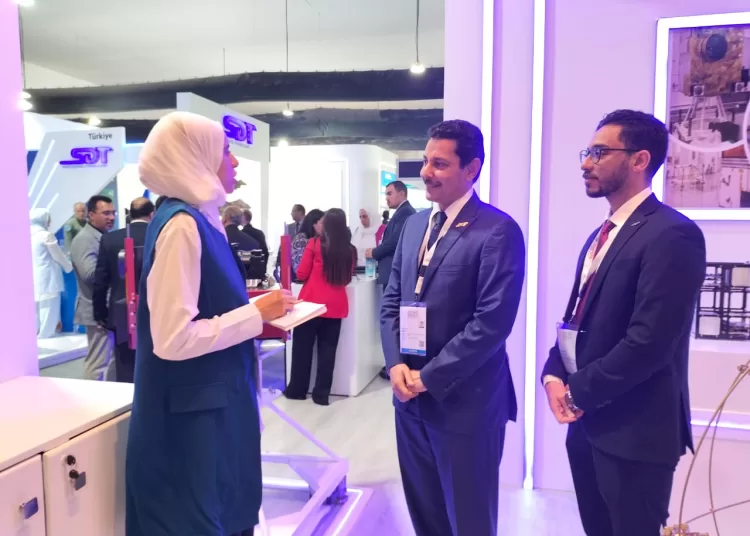In exclusive remarks to The Egyptian Gazette
By Sarah Saad
Head of the Central Administration for Space Systems Development at the Egyptian Space Agency Haitham Medhathas highlighted Egypt’s entry into the space technology industry more than 20 years ago, with the start of the atechnology transfer programme with Ukraine.
He pointed to Egypt’s growing capacity in space over the recent years, particularly with the inauguration of the Egyptian Space Agency (EGSA) in 2018. Work was activated there a year later.
This came on the sidelines of Egypt International Airshow (EIAS) 2024 that was organised at El Alamein International Airport under the auspices of President Abdel Fattah El-Sisi on September 3-5
Representatives of more than 100 countries and more than 300 aeroplane manufacturers as well as space industrialists took part in the three-day event.
In exclusive remarks to The Egyptian Gazette, Medhat elaborated that Egypt launched two satellites of different sizes from February to December 2023. One is called Mini Satellite which is currently being worked on and utilised for agricultural and water resources applications and monitor urban development. The other, Micro Satellite, is used as advanced technology.
Up to 40 per cent of the Micro Satellite’s technology is owned and work is being done to develop its programmes, Medhat Said.
Assembly and testing of that satellite will take place in Egyptian military factories in cooperation with Germany.
Medhat stressed the importance of localising the manufacture of space technology in Egypt and to spread the applications that are being worked on to serve citizens.
He also pointed to several international models that leverage space technology to serve people in agriculture. In South Africa, he noted, satellite technology contributed to a six-fold increase in the productivity of one feddan, improving the living standard of farmers.
“Satellite technology is also used for water resources management, identifying pollutants and urban planning applications,” Medhat said.
“There are ongoing contacts with the relevant authorities to achieve the optimal benefit fromsatellite technology,” he added.
“We are also working on localising space technology in the region, being ready to offer scientific and technical co-operation to anyone who wants it,” Medhat said.
“We have a satellite dedicated to teaching students in schools and universities, which qualifies students to work in the field of space,” he added.
He further noted that a training is being done for a number of students from different African countries to work on localising space technology. He referred to Egypt’s Satellite Assembly, Integration and Testing (AIT) centre, which is considered one of the ten largest centres in the world.
Medhat stressed that Egypt is ready to pump more investments into localising and developing space technology.






Discussion about this post